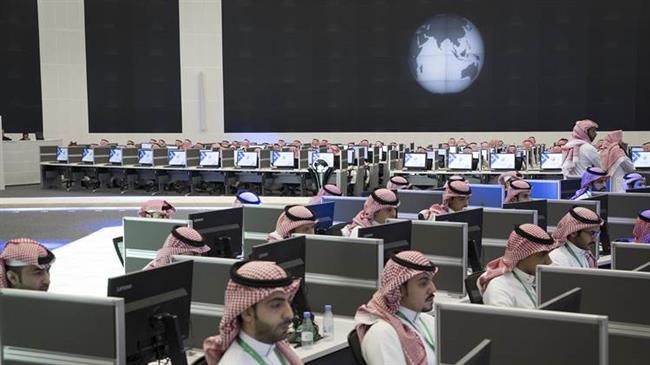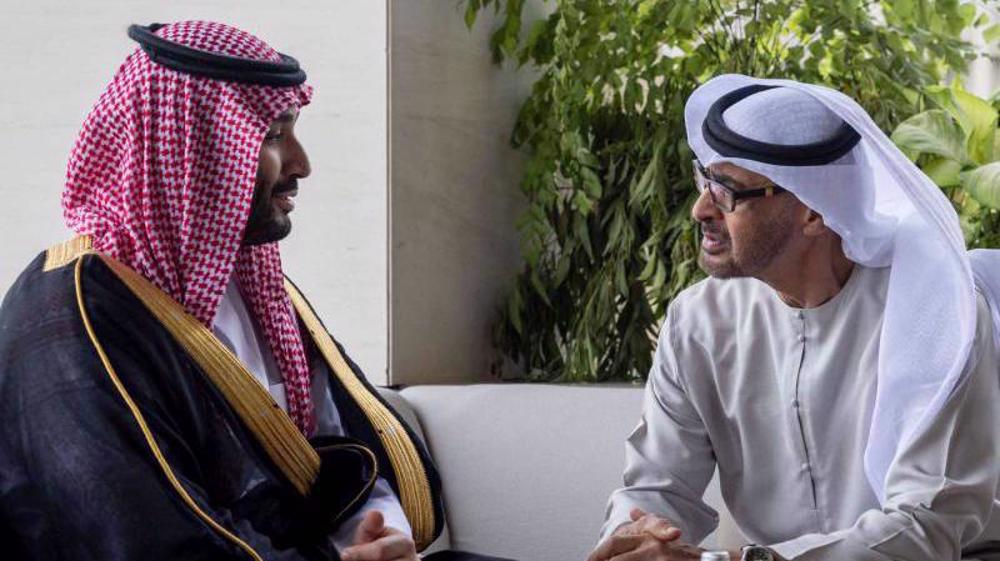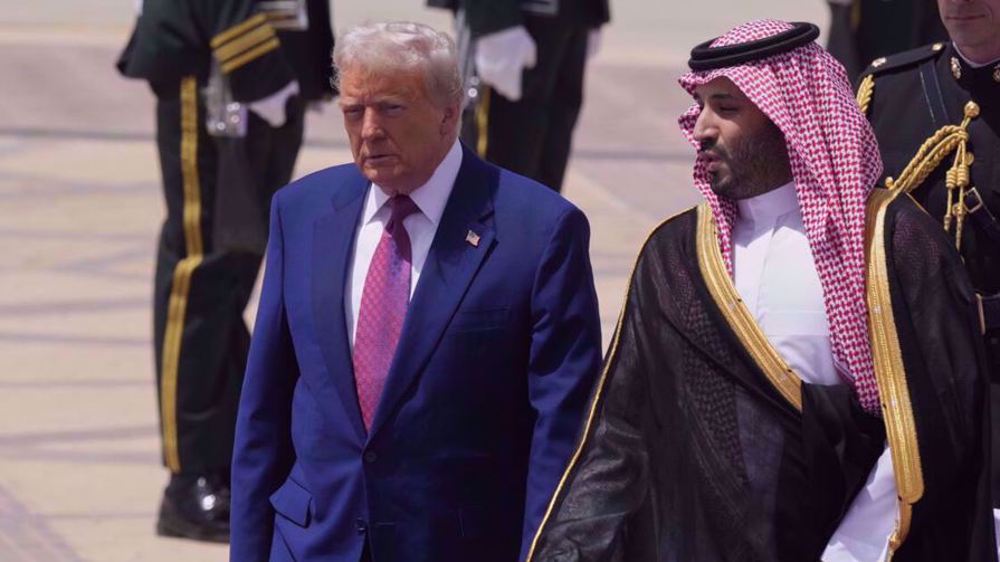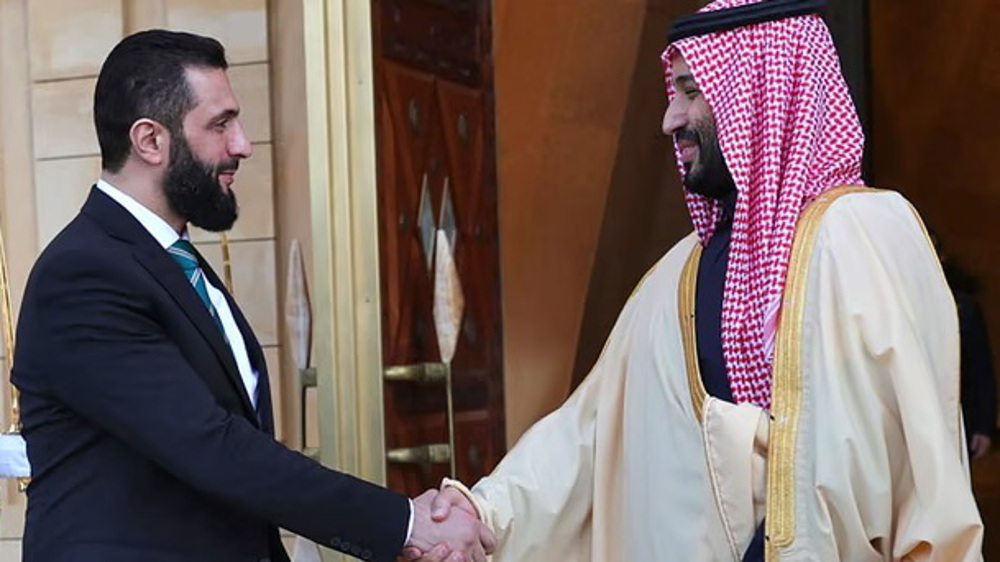Saudi online trolls at work to stoke hatred, sectarianism against Iran
The regime in Riyadh appears to have an insatiable appetite to forward its ideological agenda through spreading sectarian sentiments.
In doing so, Saudi Arabia has been using hundreds of Twitter bots at its disposal to sway the public belief about the truth behind the crises in West Asia.
There is no match to the extreme sectarianism the House of Saud seeks to disseminate in line with its state doctrine of Wahhabism, a fundamentalist ideology that considers followers of all other Islamic schools of thought to be non-Muslim apostates, and is shared by genocidal Takfiri terrorist groups such as Daesh and al-Qaeda.
Saudi state clerics often go on television and call for the killing of Shia Muslims and other religious minority groups.
Such explicit incitements to genocide is not at all uncommon in Saudi Arabia as well as in the US-backed regimes in certain other Arab states of the Persian Gulf region.
Last month, Twitter uncovered a “significant” misinformation operation originating in Saudi Arabia and backed by Riyadh. It removed more than a staggering 88,000 accounts involved in the operation, which included activity against Iran.
Twitter issued a statement, saying it had removed the accounts for violating the US-based company’s “platform manipulation policies.”
It said it was sharing “comprehensive data” about 5,929 of the accounts, which it said “represent the core portion” of the “larger network” of the more than 88,000 accounts.
In September 2019, Twitter said it had closed accounts related to Riyadh’s “state-run media apparatus,” including that of Saud al-Qahtani — a close aide to Crown Prince Mohammed bin Salman.
In January 2018, Marc Owen Jones, a Research Fellow at the Institute for Arab and Islamic Studies at Exeter University, discovered hundreds of Twitter bots that Riyadh had been using to distract the public opinion from the realities in the Middle East.
In an article on his personal blog, Jones argued that repressive regimes such as Saudi Arabia and Bahrain have used social media to prevent the spread of uncensored information about their own governments.
Warning of an “industrial-scale propaganda” in the Persian Gulf region, the author said his investigations had revealed thousands of fake Twitter accounts used for the purpose of “polluting hashtags around the Persian Gulf with anti-Shia and anti-Iranian propaganda.”
In 2017, a new Vox video was an addition to a media onslaught that propagates numerous misleading talking points to demonize Iran.
The video appeared just as the anti-Iran US administration, under Donald Trump, was ratcheting up aggression against Tehran.
The 10-minute film, titled The Middle East’s Cold War, Explained, is a textbook example of how the US government propaganda pervades corporate media.
With the help of a former senior government official and CIA analyst, the Vox video articulates a commonplace pro-US, anti-Iran narrative that portrays the conflicts in West Asia as sectarian proxy wars between Iran and Saudi Arabia.
In order to do so, the film grossly downplays US involvement in the region, treating Saudi Arabia as though it acts independently of Washington. It also fails to ever mention the Israeli regime, totally removing one of the most vicious players in the region.
Vox multimedia producer Sam Ellis likewise constructs a false equivalence for Iran, depicting it as a kind of ‘Shia’ Saudi Arabia that is just as guilty of spreading sectarianism.
The video correspondingly exaggerates Iran’s international influence, which is assumed to be of a malign nature.
The Vox video expertly reflects the CIA’s perspective of Iran, first and foremost by regurgitating a popular yet false talking point: The violent conflicts in Syria, Iraq and Yemen are proxy wars between Iran and Saudi Arabia, and part of a larger new ‘Cold War.’
Seeming to be seen everywhere in the US media, the narrative is misleading for two primary reasons. Firstly, these wars are not all proxy conflicts. Secondly, Saudi Arabia is not acting independently of the US.
Yemen is a great example of just how false this narrative is.
Vox casually states in the video that the conflict in Yemen is a proxy war between Iran and Saudi Arabia, even going so far as to call the Ansarullah movement “an Iranian proxy.” This is an outrageous propaganda point used by the White House and Al Saud.
According to the US government narrative peddled by Vox and virtually all corporate media, the Ansarullah fighters are ‘Shia rebels supported by the Islamic Republic.’
In fact, the word Shia was not even used to refer to Yemenis until the 2011. Ansarullah, the official name of the Houthi movement, is an organic group in Yemen that was founded in the 1990s.
The reality is the war on Yemen is an imposed one, carried out by the United States, Saudi Arabia, the United Arab Emirates, Britain and several other countries, which have desperately tried to restore an unpopular president, Abd Rabbuh Mansour Hadi, who won an “election” in 2012 with no other candidates, illegally overstayed his term in office and then officially stepped down before he fled to Saudi Arabia for protection.
A large number of tweets are produced by Saudi-owned spammers with a sectarian, hate-inciting agenda every day.
Possibly the most ridiculous trolls on Twitter are the pro-Saudi trolls. 17 followers each & one "everything's great in the kingdom" reply after another. Not that the regime cares, of course, but I wonder how much money they are paying to whatever PR firm is doing such a joke job
— Andrew Stroehlein (@astroehlein) January 6, 2020
They just gained some 3000 followers ini the past few hours. Less than 100,000 to go now...
— Andrew Stroehlein (@astroehlein) January 6, 2020
Please keep sharing, everyone!
For those following news on Iran closely for the 1st time, be forewarned that there is a *huge* online troll army (w/ funding from U.S. State Dep't, Saudis, etc., in part associated w fringe Iranian cult Mujahedin-e Khalq (MEK), in part linked to discredited fmr royal family...
— Golnar Nikpour (@g_nar) January 4, 2020
I see trolls are trying to manufacturer another conspiracy peddled by #MikePence to justify their stupidity & corruption. Soon all Republicans will say Iran caused 911 not Osama Bin Laden with Saudi money. #CorruptGOP #LiarInChief #MorningJoe #FoxNews
— Pro-Choice Mom (@SecularMomNC) January 6, 2020
Let's make it clear, the claim from war mongers that Americans were killed by Soleimani/Iran are talking about soldiers serving in war zones not civilians. We've indiscriminately killed civilians in the ME for decades. We shouldn't have ever been there in the first place! https://t.co/ZQsR5UtZf1
— Pro-Choice Mom (@SecularMomNC) January 6, 2020
“Trump’s threat to attack Iran’s cultural heritage shows his callous disregard for global rule of law. Whether refusing to condemn the brutal murder of Saudi dissident Jamal Khashoggi or pardoning convicted war criminals, Trump has shown little respect for human rights...”
— Andrew Stroehlein (@astroehlein) January 6, 2020
So, the Paris-Dakar Rally will go to neither Paris nor Dakar...
— Andrew Stroehlein (@astroehlein) January 6, 2020
It's been moved to Saudi Arabia, where the government continues to imprison & torture women’s rights activists for advocating for the right to drive. #DakarInSaudi #StandWithSaudiHeroes https://t.co/4Hkc3VuzMp pic.twitter.com/pw6NdjJ2ob
Why Iran’s Leader refused special protection, leading from the front until last breath
Hezbollah strikes Israeli surveillance, military base in Golan Heights, occupied lands
Iran holds funeral for 165 children murdered in US-Israeli aggression
Iran destroys main command building, headquarters of US air base in Bahrain
US embassy in Saudi capital set ablaze after drone attack: Riyadh
Saudi Arabia, Qatar foiled Mossad bombing plots on their soil: Tucker Carlson
Iran's firm response will last as long as attacks do: Envoy
Shedding of American, Iranian blood on ‘Israel firsters’: Iran FM











 This makes it easy to access the Press TV website
This makes it easy to access the Press TV website